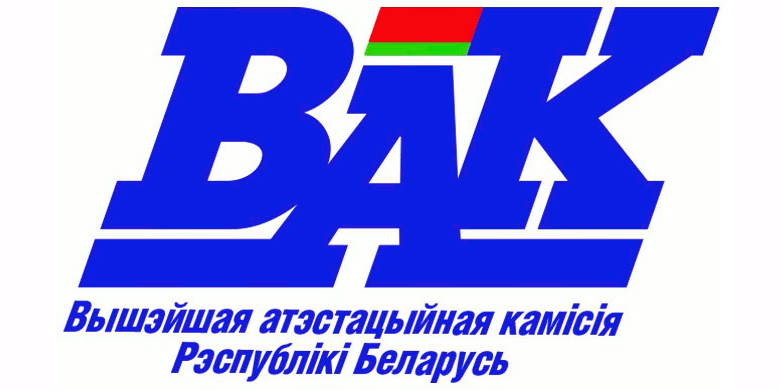Институциональные циклы в экономике России и Беларуси в контексте концепции Х–матрицы.
Аннотация
В статье проведен сравнительный анализ эволюции институциональных циклов белорусской и российской экономик. Дана характеристика трех основных институциональных циклов российской и белорусской экономики с начала этногенеза социумов (VIII–XII вв.) и по настоящее время. Выявлены отдельные закономерности и факторы трансформации институциональной структуры переходной экономики. Отмечена особая значимость переходных периодов. Выявлена специфическая и важная роль комплементарных институтов в эти периоды. Показано, что белорусская и российская институциональные матрицы никогда не сливались в единую матрицу, имеют собственную историю и собственную траекторию движения по фазам этногенеза. = The comparative analysis of evolution of the institutional cycles of the Belarus and Russian economy is given. The characteristic of three basic institutional cycles of the Russian and Belarus economy from the beginning ethnic genesis of the societies (VIII–XII c.c.) and on present time is given. The separate laws and factors of transformation of the institutional structures of economy are revealed. The special importance of transition periods is noted. The specific and important role of the complementary institutes during these periods is revealed. It is shown, that Belarus and Russian institutional matrixes never merged in a uniform matrix. This countries have own history and own trajectory of movement on phases of the ethnic genesis.Библиографические ссылки
Бессонова, О.Э. Раздаток: институциональная теория озяйственного развития России / О.Э. Бессонова. – Новосибирск : ИЭиОПП СО РАН, 1999. [Электронный ресурс] / – Режим доступа :
http://ie.boom.ru/Bessonova/Mon2.htm. – Дата доступа: 30.10.2010.
Гісторыя Беларусі [Текст] /А.Л. Абецэдарская [і інш.] – Мінск : Экаперспектыва, 1997. – 496 с.
Гумилев, Л.Н. Конец и вновь начало: популярные лекции по народоведению / Лев Гумилев. – М.: АСТ: Астрель, 2010. – 415 с.
Кирдина, С.Г. X– и Y–экономики: институциональный анализ. [Электронный ресурс] / Кирдина, С.Г. X– и Y–экономики: институциональный анализ/ С.Г. Кирдина. – Режим доступа :
http://kirdina.ru/book2/intro.shtml. – Дата доступа : 30.10.2010
Ключевский, В. Курс русской истории [Электронный ресурс] / Ключевский, В. Курс русской истории / В. Ключевский. – Режим доступа : www.spsl.nsc.ru/history/kluch/kluchlec.htm. – Дата доступа :
12.2011.
Ксензова, В.Э. Роль базовых институтов в структурной трансформации белорусской экономики / Ксензова В.Э., Ксензов С.В. // Факторы и перспективы посткризисных структурных трансформаций в белорусской экономике: монография / С.Ю. Солодовников [и др.]; под науч.ред. К.К. Шебеко. – Пинск: ПолесГУ, 2010. – Гл. 2. – С. 18–26 ; Ксензова, В.Э. Особенности становления базовых институтов в Беларуси/ В.Э. Ксензова, С.В. Ксензов // Устойчивое развитие экономики: состояние, проблемы, перспективы: материалы третьей международной научно–практической конференции, УО «Полесский государственный университет», г. Пинск, 20–22 мая 2010 г. / Национальный банк Республики Беларусь [и др.]; редкол.: К.К. Шебеко [и др.]. – Пинск : ПолесГУ, 2010. – С. 142–145.
Лемещенко, П.С. Переходный период в контексте институционально–эволюционной теории. [Электронный ресурс] / – Режим доступа: http://newpoliteconomy.org/publications/articles/220.pdf. – Дата доступа: 05.10.2012.
Нарысы гісторыі Беларусі. У 2–х ч. Ч.1. [Текст] / М.П. Касцюк [ і інш.] – Мінск : Беларусь, 1994. – 527 c.
Загрузки
Как цитировать
Выпуск
Раздел
Лицензия
Автор предоставляет Редакции журнала на весь срок действия исключительных прав на Произведение следующие права:
1. право на воспроизведение Произведения (опубликование, обнародование, дублирование, тиражирование или иное размножение Произведения) без ограничения тиража экземпляров. При этом каждый экземпляр Произведения должен содержать имя автора Произведения;
2. право на распространение Произведения любым способом;
3. право на включение в составное произведение;
4. право на доведение до всеобщего сведения;
5. на использование метаданных (название, имя автора (правообладателя), аннотации, библиографические материалы и пр.) Произведений путем распространения и доведения до всеобщего сведения, обработки и систематизации, а также включения в различные базы данных и информационные системы.
6. право переуступить на договорных условиях частично или полностью полученные по настоящему договору права третьим лицам без выплаты Автору вознаграждения.
Автор передает права Редакция журналау по настоящему Договору на основе неисключительной лицензии.
Редакция журнала обязуется соблюдать предусмотренные действующим законодательством авторские права, права Автора, а также осуществлять их защиту и принимать все возможные меры для предупреждения нарушения авторских прав третьими лицами.
Территория, на которой допускается использование прав на Произведения, не ограничена.
Автор также предоставляет Редакция журналау право хранения и обработки следующих своих персональных данных без ограничения по сроку:
• фамилия, имя, отчество;
• дата рождения;
• сведения об образовании;
• сведения о месте работы и занимаемой должности;
• сведения о наличии опубликованных произведений литературы, науки и искусства.
Персональные данные предоставляются для их хранения и обработки в различных базах данных и информационных системах, включения их в аналитические и статистические отчетности, создания обоснованных взаимосвязей объектов произведений науки, литературы и искусства с персональными данными и т.п.
Редакция журнала имеет право передать указанные данные для обработки и хранения третьим лицам при условии уведомления о таком факте с предоставлением сведений о третьем лице (наименование и адрес) Автору.
Отзыв согласия на хранение и обработку персональных данных производится Автором путем направления соответствующего письменного уведомления Редакции журнала.
Автор и Редакция журнала несут в соответствии с действующим законодательством Республики Беларусь имущественную и иную юридическую ответственность за неисполнение или ненадлежащее исполнение своих обязательств.
Сторона, ненадлежащим образом исполнившая или не исполнившая свои обязанности, обязана возместить убытки, причиненные другой Стороне, включая упущенную выгоду.
Все споры и разногласия Сторон, вытекающие из условий настоящего Договора, подлежат урегулированию путем переговоров, а в случае их безрезультатности, указанные споры подлежат разрешению в суде в соответствии с действующим законодательством Республики Беларусь.
Расторжение настоящего соглашения возможно в любое время по обоюдному согласию Сторон, с обязательным подписанием Сторонами соответствующего соглашения об этом.
Расторжение настоящего соглашения в одностороннем порядке возможно в случаях, предусмотренных действующим законодательством, либо по решению суда.
Во всем, что не предусмотрено настоящим соглашением, Стороны руководствуются нормами действующего законодательства Республики Беларусь.















.gif)
